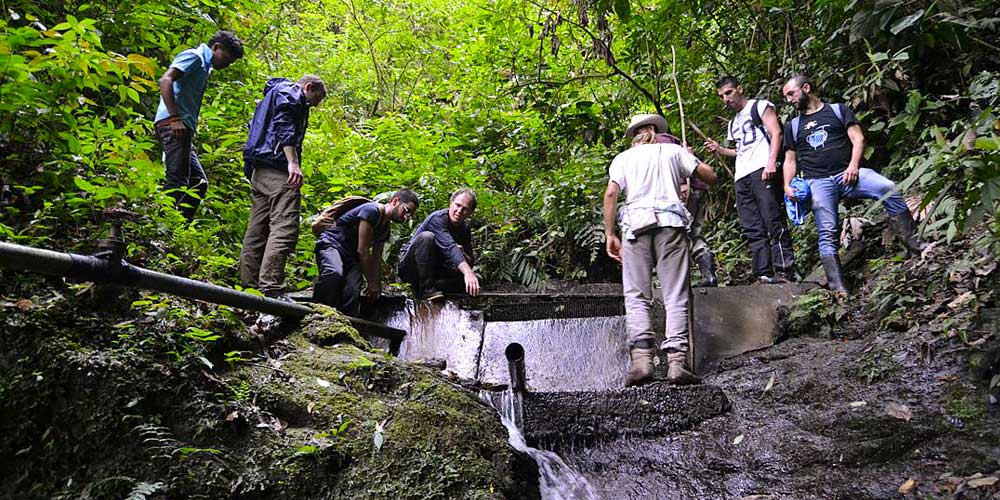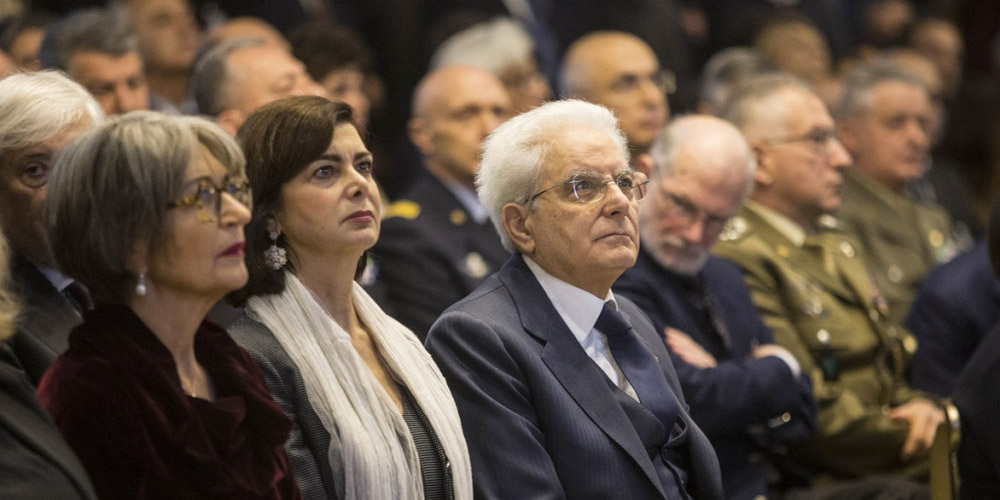“By starting, we share step by step the development of communities, learn practices and models of energy accessibility, develop new energy-environmental projects.”
Who we are
There are researches waiting to be done, and people who could get better quality of life from the results of those researches; there are researchers who have ideas, but do not have the means to develop them… It is about those researches that are unable to finance themselves with the economic profit they can produce. Among these researches, those of environmental, social, humanitarian interest are of considerable importance and often do not have adequate support. It is research that manages at most to thrive in universities and public research bodies, but which is increasingly caught in a vice between constantly decreasing funding and demands for purely economic efficiency.

Technical Solidarity Onlus operates in the field of technologies for sustainable development and renewable energy, for the protection and care of the environment, for the modernization of developing rural communities, for the reduction of damage caused by wars, the autonomy of people with disabilities, and in all those fields of social interest where scientific development and technological innovation can produce new values, financially negligible, but priceless for people’s lives.
The association is active in Italy, Africa and Central America.
Awards
In the presence of the President of the Republic Mattarella awarded the Technological and Educational Innovation of Wisdom (DIMA-DIAEE), Tecnologie Solidali Onlus and the Interuniversity Research Centre for Sustainable Development, in reference to the sustainable international projects of the Field Study Abroad
The Energy Engineering Course of the Sapienza University of Rome (DIMA-DIAEE), Tecnologie Solidali Onlus and the Interuniversity Research Centre for Sustainable Development, with reference to the Abroad Field Study, have been nominated for excellence in the “Italia Decide” Award, for Technological Innovation of Sustainable Development and specifically as Innovation in Education and Higher Education.
![]()
The award was presented on the occasion of the presentation of the Report “Italia Decide” 2018 at the Queen’s Hall of the Chamber of Deputies, in the presence of the President of the Republic, Sergio Mattarella and the President of the Chamber Laura Boldrini.
Luciano Violante, President of the association Italia Decide and Federica Mogherini, High Representative of the European Union for Foreign Affairs and Security Policy, took part.
 The prize was awarded to Prof. Andrea Micangeli, creator and coordinator of the FSA, Professor of Energy Systems at the Department of Mechanical Engineering of the Sapienza University of Rome and at the State University of New York (SUNY), and part of his staff of researchers, PhD students and engineering students, Carlo Tacconelli, Paolo Cherubini and Caterina Celia.
The prize was awarded to Prof. Andrea Micangeli, creator and coordinator of the FSA, Professor of Energy Systems at the Department of Mechanical Engineering of the Sapienza University of Rome and at the State University of New York (SUNY), and part of his staff of researchers, PhD students and engineering students, Carlo Tacconelli, Paolo Cherubini and Caterina Celia.
For the year 2018 the Association, in line with the United Nations Sustainable Development Goals, wanted to draw attention to the growing and unavoidable criticality of the energy-environmental issue, which requires action on the problems of sustainable management of resources, environmental protection and the urgent and global mitigation of climate change.
Considering the decisive role that the University can and must play institutionally within the national community, the 2018 “Administration, Citizens, Businesses” Prize has been awarded to activities carried out by engineering departments of public universities in the field of energy and environmental technologies. The Commission has worked in close collaboration with MIUR and the Conference of Rectors of Italian Universities – CRUI.

Field Study Abroad is an interdisciplinary training project of scientific research, international cooperation, which is realized through the participation of researchers and students in sustainable development projects in rural areas in Italy, Central America and Africa. The project is proposed by the DIMA-DIAEE of Sapienza and the Inter-University Research Centre for Sustainable Development, which deal with the didactic, scientific and technical aspects, and the ONLUS “Tecnologie Solidali”, which deals with the logistic and didactic management on site.
![]() Numerous professors and students from universities, international research centres, among others, contribute to the realization of the project: University of Rome “Sapienza”, University of Pisa, State University of New York (SUNY), Strathmore University of Nairobi, Universidad de Costa Rica, Universidad Nacional Autonoma de Honduras (UNAH), University of Cambridge, Columbia University of New York, in cooperation with small and large companies like Meridiana Energy (Italy), Coopesantos (Costa
Numerous professors and students from universities, international research centres, among others, contribute to the realization of the project: University of Rome “Sapienza”, University of Pisa, State University of New York (SUNY), Strathmore University of Nairobi, Universidad de Costa Rica, Universidad Nacional Autonoma de Honduras (UNAH), University of Cambridge, Columbia University of New York, in cooperation with small and large companies like Meridiana Energy (Italy), Coopesantos (Costa ![]() Rica), Bujagali (Uganda), Giz (Rwanda), and NGOs such as RETE (Honduras), AVSI (Uganda and Kenya), and Italian companies present on the territory (in particular for the activities in Kenya, the Field Study Abroad has joined the Micro Grid Academy, managed by RES4Africa).
Rica), Bujagali (Uganda), Giz (Rwanda), and NGOs such as RETE (Honduras), AVSI (Uganda and Kenya), and Italian companies present on the territory (in particular for the activities in Kenya, the Field Study Abroad has joined the Micro Grid Academy, managed by RES4Africa).
The projects proposed and implemented, put into practice the United Nations Sustainable Development Goals and aim to prepare professionals who are able to apply technological, financial and social solutions, appropriate to the problems of developing communities that are encountered in both urban and rural areas.
The development of projects and related technologies is carried out around closely related themes:
- renewable energy systems, environment;
- pre-feasibility studies and project management;
- financial evaluation;
- humanitarian aid and international development cooperation..
![]()
The Field Study Abroad project is also innovative from the point of view of social inclusion of rural communities.
In fact, in addition to benefiting from the development of projects such as electrification and water purification, communities also benefit from the development of working activities, as local residents are often trained and employed in the implementation of projects.
The innovative methodology lies in the concept of “researching by doing” and “learning by doing”, doing research and learning in the field, i.e. combining the theoretical aspects of design with the practical aspects of work experience.
The projects encountered so far have been completed through several editions of Field Study Abroad and represent the witness that each group passes to the next one and to the local community with a relay race that is repeated three times a year. The finalized projects remain in the monitoring phase, or are feasibility studies, others are analyzed as case studies for subsequent Field Studies.
Some projects developed in Central America

- Photovolatics plant to promote the activities of fishermen and for the protection of marine biodiversity in a protected area, Cuero y Salado, Honduras;
- Photovoltaic system installed in a Yoga Garden, built to promote the spread of cultural and tourist facilities, sustainable, Tegucigalpa, Honduras;
- Hydroelectric plant for the electrification of a rural village, El Dictamo, Honduras;
- Efficiency and environmental sustainability project applied to a School of Agriculture and Livestock, San Ramon, Costa Rica;
- Application of small energy systems to a centre of refugee women victims of violence structured as a sustainable farm, Upala Costa Rica;
- Expansion project of a wind farm, Coopesantos Costa Rica;
- Feasibility study of a micro-grid in the islands of Cayos Cochinos, Honduras;
- Case Study: Nano-Hydro Power System at a community in Muralla Park, Olancho, Honduras and an isolated community, Quinito, Honduras;
- Case Study: Hydroelectric Power Plant at Enel Green Power in Costa Rica and feasibility study of an auxiliary photovoltaic plant to the plant.
Projects developed in East Africa (Rwanda, Uganda, Kenya): :
- Photovoltaic plant in a rural village on an island;
- Feasibility analysis of a photovoltaic plant in a hospital;
- Hybrid Mini-grid;
- Off-grid site identification.
Technologies designed and applied in Central America and Africa:

- OSEC, On site electrolytic chlorination, water disinfection technology that uses the electrochlorination process, built and installed in many communities in Central America and Africa;
- Study for the conversion of the propulsion system of boats from conventional to electric in Cuero y Salado and Quinito;
- Feasibility study of special solar lanterns to be realized for fishing communities in collaboration with Makerere University;
The Field Study project has involved institutions such as universities, research centres, non-profit associations, electricity companies in order to promote the transfer of knowledge and the sharing of good practices of sustainability from a technical, social and academic point of view, promoting collaboration between civil society and institutions.
[Source: http://blog.rinnovabili.it/ ]

